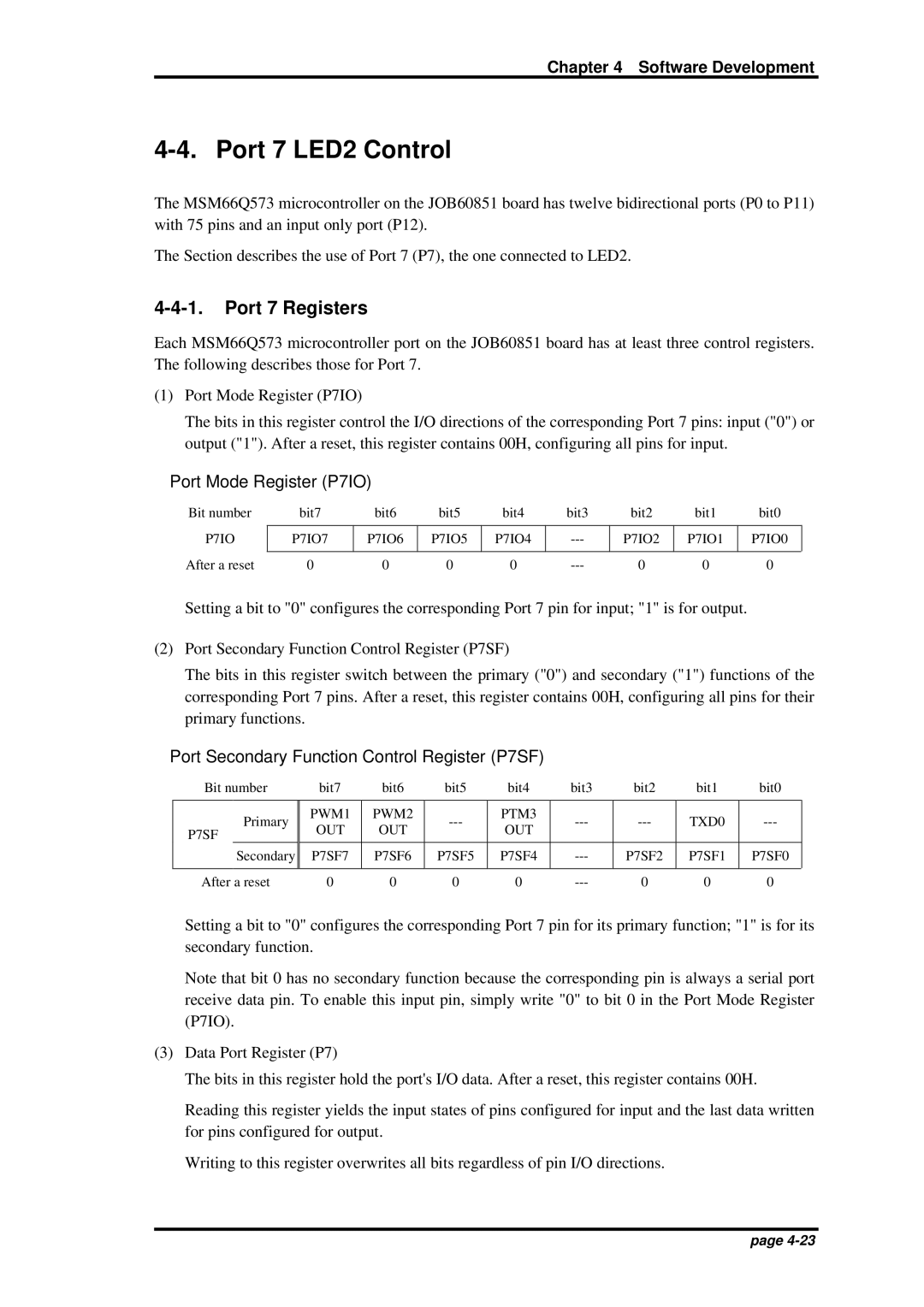
Chapter 4 Software Development
4-4. Port 7 LED2 Control
The MSM66Q573 microcontroller on the JOB60851 board has twelve bidirectional ports (P0 to P11) with 75 pins and an input only port (P12).
The Section describes the use of Port 7 (P7), the one connected to LED2.
4-4-1. Port 7 Registers
Each MSM66Q573 microcontroller port on the JOB60851 board has at least three control registers. The following describes those for Port 7.
(1)Port Mode Register (P7IO)
The bits in this register control the I/O directions of the corresponding Port 7 pins: input ("0") or output ("1"). After a reset, this register contains 00H, configuring all pins for input.
Port Mode Register (P7IO)
Bit number
P7IO
After a reset
bit7 | bit6 | bit5 | bit4 | bit3 | bit2 | bit1 | bit0 |
P7IO7 | P7IO6 | P7IO5 | P7IO4 | P7IO2 | P7IO1 | P7IO0 | |
|
|
|
|
|
|
|
|
0 | 0 | 0 | 0 | 0 | 0 | 0 |
Setting a bit to "0" configures the corresponding Port 7 pin for input; "1" is for output.
(2)Port Secondary Function Control Register (P7SF)
The bits in this register switch between the primary ("0") and secondary ("1") functions of the corresponding Port 7 pins. After a reset, this register contains 00H, configuring all pins for their primary functions.
Port Secondary Function Control Register (P7SF)
Bit number | bit7 | bit6 | bit5 | bit4 | bit3 | bit2 | bit1 | bit0 | |
| Primary | PWM1 | PWM2 | PTM3 | TXD0 | ||||
| OUT | OUT | OUT | ||||||
P7SF |
|
|
|
|
| ||||
|
|
|
|
|
|
|
| ||
| Secondary | P7SF7 | P7SF6 | P7SF5 | P7SF4 | P7SF2 | P7SF1 | P7SF0 | |
|
|
|
|
|
|
|
|
| |
After a reset | 0 | 0 | 0 | 0 | 0 | 0 | 0 | ||
Setting a bit to "0" configures the corresponding Port 7 pin for its primary function; "1" is for its secondary function.
Note that bit 0 has no secondary function because the corresponding pin is always a serial port receive data pin. To enable this input pin, simply write "0" to bit 0 in the Port Mode Register (P7IO).
(3)Data Port Register (P7)
The bits in this register hold the port's I/O data. After a reset, this register contains 00H.
Reading this register yields the input states of pins configured for input and the last data written for pins configured for output.
Writing to this register overwrites all bits regardless of pin I/O directions.
page
